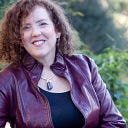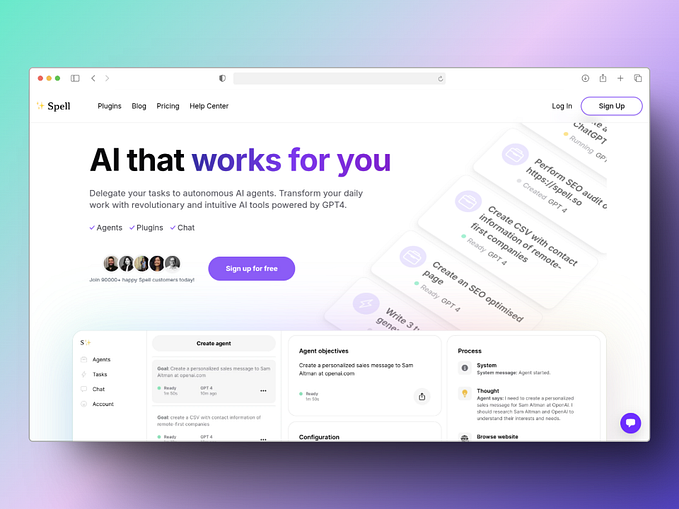Future Here Now: Unbounded Communities

Hi.
I took a couple of weeks off as I was finishing a series and shifting to a new format. Future Here Now is focusing on practical, applicable implications of the profound changes we’re all experiencing as we move through this massive transition. It’s like when our ancestors lived through the sea change from a medieval agricultural village to a factory, only this time it’s faster, more complex and more confusing.
No wonder so much of what we do — for businesses, organizations, communities — feels like it doesn’t work. Our systems — and our brains — haven’t caught up.
Futurists call events that give us a glimpse of the future Signals. Each issue of Future Here Now lays out three potential Signals unfolding all over the world — and helps us unpack what they’re telling us.
I publish Future Here Now three times per week, and most weeks I give subscribers an additional article, tool or resource. I only put a snippet of one of those on here. If you want to get all of the Signals — and learn what to do with them — subscribe to Future Here Now at wiseeconomy.substack.com. You get a free post and a 7-day trial with no obligation.
Come and join us!
One of the most profound changes impacting us right now and into the future is the explosion of communities — communities that often aren’t bound by any geography.
Think about it: for most humans, for most of human experience, the only communities that you could belong to easily were bounded by a shared geography — a village, a college, a church, a local chapter of a guild or fraternal organization. Your choices of communities were dramatically limited by the place where you lived. That narrow range of options limited not only who you associated with, but what you learned about yourself — and about others who might live very differfent lives somewhere else.
It’s no wonder that a dizzying array of self-expression has developed in the last 20 years, from hobbies to disabilities, to music, to sexual identity. That doesn’t just mean that you can encounter people that you would never meet in your geographic community, but it also means that you can find belonging and connection among people who share your specific interest anywhere in the world. The place where you feel most safe, most understood and appreciated, may not be a physical place at all. That is a paradigm — shattering shift in how we do that fundamental human thing: connect to others.
To understand why these communities show us a paradigm-shattering force, we have to see beyond the minimum impact of the Facebook groups and the like that most of us encounter (and/or get annoyed by), because those are simply baby steps. These three stories help us to see areas where these untethered communities are already changing fundamentals of power, economic action and financial access.
That’s the earth-shaking part. And we will see more and more of this kind of impact in years to come.
New Community Power among Youth in Africa
One of the most direct impacts of a strong community is the ability to advocate for change — the ability to organize large groups of people to take action. We in the global West have cetainlt seen recent mass movements — the Women’s March, protests against racism and genocide — but what we miss sometimes is how incredibly difficult it used to be to create a community that can do this. The sufferage movement in the US and Great Britain took nearly a hundred years of organizing local communities and trying to stitch them together into a national movement. When people who care about an issue are already in a community online, then they can be mobilized with a speed that could not have been conceived by the likes of Elizabeth Cady Stanton.
Most of us Westerners have precious little idea what is going on in Africa (other than it-bleeds-it-leads kinds of stories). But closer observers are seeing a rise of a youth-oriented community across much of Africa that looks like it could upend long histories of tyrrany and corruption. This interview is definitely worth a listen for its insight into the most impactful application of this type of community building. And since their counterparts in Bangladesh just chased out an increasingly autocratic prime minister in a matter of weeks, it looks like these new forms of community are on the verge of creating a whole new approach to grassroots impact.
Communities within community: the co op support network
This how to guide pulls off a pretty cool trick. Cooperative businesses aren’t new, but they are exploding in popularity, to the point where there are multiple consulting firms nationally that specialize in helping you design and set up your co op.
The fascinating thing that this guide points to is this multi-layer dimension to the new breed of communities. A modern cooperative business often tends to be hyper-local focused — cooperative groceries, for example, typically depend on local residents to become owners, and they often prioritize local foods and local impact on health and food access. And while co operatives aren’t the norm, this is hardly a new business model — more of a return to a much older one.
The difference is that cooperative businesses are increasingly embedded themselves in a regional or national network — the network resources accessible from this article’s links alone could keep potential co op owners occupied with reading and watching for months. And then there’s the person-to-person. Think of the relative ease with which a new co op manager can find others who have faced similar challenges. Even if you don’t use one of those consulting firms, help is a Google search plus email or a video call away.
And nothing about that is particularly unique to cooperative businesses. You will see the same trends across all sorts of small businesses and organization types.
“Local” used to mean relatively isolated, left to your own devices, figure it out. Now your local is embedded in a larger local with an immediacy that it never has been before. That drastically speeds up the learning curve and allows us to learn from the experiences of others faster and more directly than ever before. But it also puts anyone who is not able or willing to tap the network at an even bigger disadvantage.
Get the third Signal and the rest of Future Here Now at wiseeconomy.substack.com






